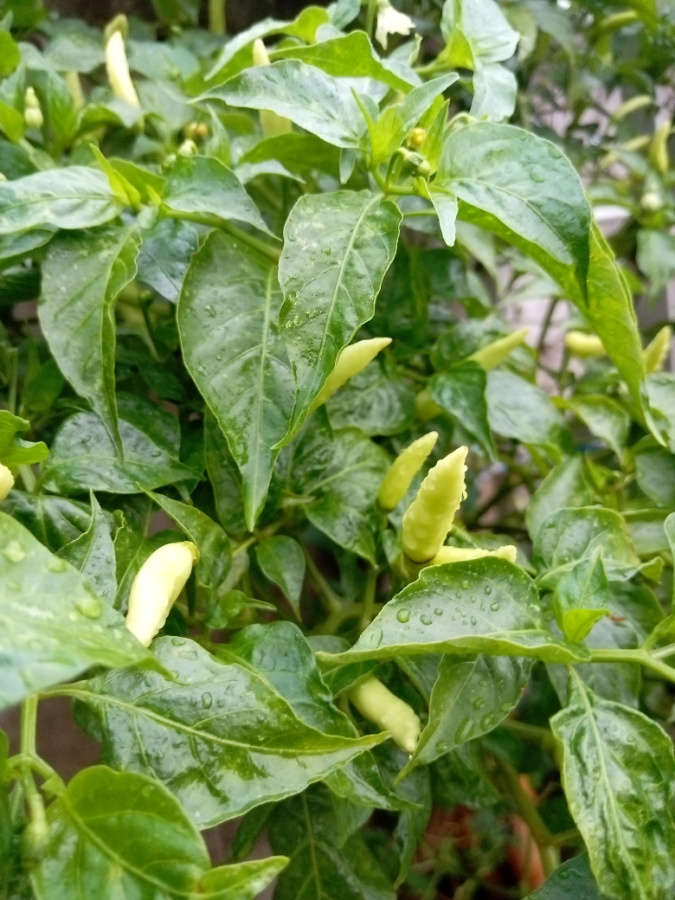Selecting the Best Fertilizers for Peppers: Specialist Recommendations
Selecting the Best Fertilizers for Peppers: Specialist Recommendations
Blog Article
Organic Vs. Synthetic Fertilizers: Which Is Best for Supporting Healthy And Balanced Pepper Plants?
In the realm of supporting healthy and balanced pepper plants, the choice in between natural and synthetic fertilizers stands as a crucial choice with far-reaching ramifications. While both options objective to provide essential nutrients to sustain plant growth, the nuances of their influence on the dirt, plant health and wellness, and the environment trigger a dispute that mirrors throughout the gardening neighborhood. Comprehending the distinctive advantages and potential challenges of each fertilizer kind is critical for pepper cultivators looking for to enhance their returns while preserving an eco-conscious and lasting method.
Advantages of Organic Fertilizers
Organic plant foods use a sustainable and environmentally-friendly method to beneficial pepper plants, offering essential nutrients without making use of synthetic chemicals. These all-natural plant foods are originated from natural sources such as garden compost, manure, bone dish, and seaweed, advertising dirt health and biodiversity. Unlike synthetic plant foods, natural options release nutrients gradually, guaranteeing a consistent and balanced supply for pepper plants to flourish.
One considerable advantage of organic fertilizers is their capacity to improve soil framework and water retention. By enhancing soil wellness, organic fertilizers advertise useful microbial task, which aids in nutrient uptake by pepper plants. Furthermore, natural plant foods reduce the danger of chemical run-off, protecting water sources from contamination and safeguarding the environment.
Moreover, natural fertilizers add to long-term soil fertility by promoting the growth of helpful dirt microorganisms. These microorganisms aid damage down natural issue, launching nutrients in a kind that is conveniently obtainable to pepper plants. best fertilizers for peppers. By fostering a healthy soil community, organic fertilizers sustain lasting pepper farming techniques that profit both plants and the setting
Drawbacks of Synthetic Fertilizers
Synthetic fertilizers, in comparison to their organic equivalents, position numerous negative aspects when made use of to nourish pepper plants, affecting both plant health and environmental sustainability. One major downside of synthetic plant foods is their tendency to seep nutrients from the soil promptly.
Additionally, the overuse of artificial plant foods can add to water air pollution. Excess plant foods not absorbed by plants can remove into water bodies, leading to eutrophication, where algae blossoms deplete oxygen degrees in the water, hurting aquatic life. Artificial fertilizers are typically obtained from non-renewable sources, such as fossil fuels, adding to carbon emissions and ecological degradation during their manufacturing.
Nutrient Absorption Contrast
Effective nutrient absorption plays a crucial function in the total health and growth of pepper plants. When comparing synthetic and organic fertilizers in regards to nutrient absorption, natural fertilizers have the advantage of offering an see extra well balanced and slow-release resource of nutrients (best fertilizers for peppers). Organic fertilizers consist of a selection of macro and trace elements that are not just useful for the plants yet also promote healthy soil microbial activity, which helps in nutrient uptake. On the other hand, artificial plant foods often provide a quick release of nutrients, which can cause seeping and drainage, resulting in reduced nutrient absorption prices by the plants.
Furthermore, organic fertilizers enhance soil structure and water retention capability, enabling pepper plants to access nutrients extra effectively. This improved soil top quality helps with root advancement, making it possible for much better nutrient absorption. Artificial plant foods, although at first improving plant growth as a result of their high nutrient focus, might impede long-lasting nutrient absorption by derogatory soil health with time.
Environmental Impact Factors To Consider

On the other hand, artificial plant foods, although usually even more concentrated and instantly available to plants, can have destructive impacts on the environment otherwise applied appropriately (best fertilizers for peppers). Their production calls for high energy inputs, leading to greenhouse gas exhausts and contributing to environment adjustment. Additionally, the drainage of excess synthetic plant foods can pollute water resources, resulting in eutrophication and damaging water ecosystems.
Ideal Fertilizer Practices for Peppers
To accomplish this, it is necessary to adhere to ideal plant food techniques customized to the details demands of pepper plants. One critical technique is to execute a dirt examination why not look here prior to applying any plant foods.
Another important technique is to fertilize pepper plants at the right time. Commonly, peppers take advantage of receiving plant food at growing and afterwards once more when they start to blossom. Over-fertilizing can result in nutrient discrepancies and hurt the plants, so it is vital to adhere to advised application rates.
In addition, selecting a balanced fertilizer with an NPK proportion that fits pepper plants' needs is essential. Eventually, incorporating organic and artificial plant foods deliberately can help support healthy pepper plants while decreasing ecological influence.
Conclusion
:strip_icc()/BHG-Growing-Peppers-Indoors-EzgaEnB7KML9Ym_plkvuxK-9398f1341d86483083862533ae7622db.jpg)
Organic plant foods supply a sustainable and environmentally-friendly approach to nourishing pepper plants, giving vital nutrients without the usage of synthetic chemicals. Unlike synthetic plant foods, natural options launch nutrients gradually, guaranteeing a consistent and balanced supply for pepper plants to thrive.
Synthetic plant foods, in comparison to their natural counterparts, position numerous disadvantages when used to nurture pepper plants, influencing both plant health and environmental continue reading this sustainability. When contrasting artificial and organic fertilizers in terms of nutrient absorption, natural plant foods have the benefit of providing a more balanced and slow-release source of nutrients.Moreover, natural plant foods boost dirt structure and water retention ability, permitting pepper plants to accessibility nutrients extra effectively.
Report this page